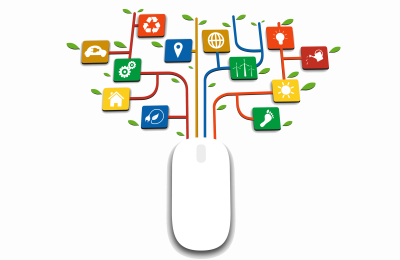IoT can revolutionise the combined transport field, embracing the vital role that ports play in today’s modal shifts. Given the expected 50% increase in EU cargo by 2030, the growing pressures of urbanisation, sustainability and labour management must be relieved. However, the multitude of operators in the value chain has led to the use of many interfaces and means of communication. Different file formats cause constant software adjustments and data integration issues. The resulting information transfer gaps between partners create a competitive disadvantage and reduce acceptance. I2PANEMA envisions smart port networks that work efficiently and sustainably through the integration of existing, heterogeneous IT systems. This will be achieved through an extensible microservice-based system architecture that interconnects different stakeholders with each other. A Data Warehouse component will collect data from sensors and management systems, displaying the analysed results on Interactive Visualisation GUIs. A Situational Awareness Component will create a Common Operational Picture (COP) of the port by executing real-time situational awareness rules. An Interoperability Layer will fuse data from various sources in a plug-and-play manner. This requires the application of sustainable data security and data protection mechanisms that can be flexibly adapted to meet the individual requirements.
In 2020, digitalisation is expected to reduce worldwide transportation and logistics costs by USD 61 billion. As European ports have barely scratched the surface of IoT, I2PANEMA will increase this figure enormously. Its architectural approach and exploitation/dissemination plans will allow actors of all sizes to utilise the framework, ultimately leading to collaborative networks. Alongside the economic benefits of optimisation, a knock-on effect will be felt throughout society: Citizens can enjoy reduced noise, congestion and air pollution around the port, while better water, waste and emissions management improve sustainability. By initiating standardisation activities for selected interoperability components, I2PANEMA envisages to permanently change the nature of combined, multi-modal transport.
SRDC is the technical coordinator of the project. Additionally, SRDC is the Turkey country coordinator. In the project, SRDC is mainly responsible for the Visualization component, where the KPIs defined in the I2PANEMA business scenarios is presented through interactive dashboards. In addition, SRDC is the leader of WP 1: Requirements Engineering, Architecture & System Design. In this workpackage, SRDC leads the T1.3 System Design and I2PANEMA Architecture.
| 1. | Materna Information & Communications | Germany |
| 2. | Hamburg Port Authority | Germany |
| 3. | Bayernhafen TriCon Container-Terminal Nürnberg | Germany |
| 4. | Catkin | Germany |
| 5. | DeltaPort | Germany |
| 6. | Dortmunder Stadtwerke AG | Germany |
| 7. | Federation of German Inland Ports | Germany |
| 8. | Fraunhofer | Germany |
| 9. | NautilusLog | Germany |
| 10. | NXP Semiconductors | Germany |
| 11. | University of Rostock | Germany |
| 12. | Gijón Port Authority | Spain |
| 13. | Prodevelop | Spain |
| 14. | ERSTE | Turkey |
| 15. | SRDC | Turkey |
| 16. | Turkcell | Turkey |
| 17. | VTEK | Turkey |







